Talking horror with Slash: “I was just turned on by things that were creepy”
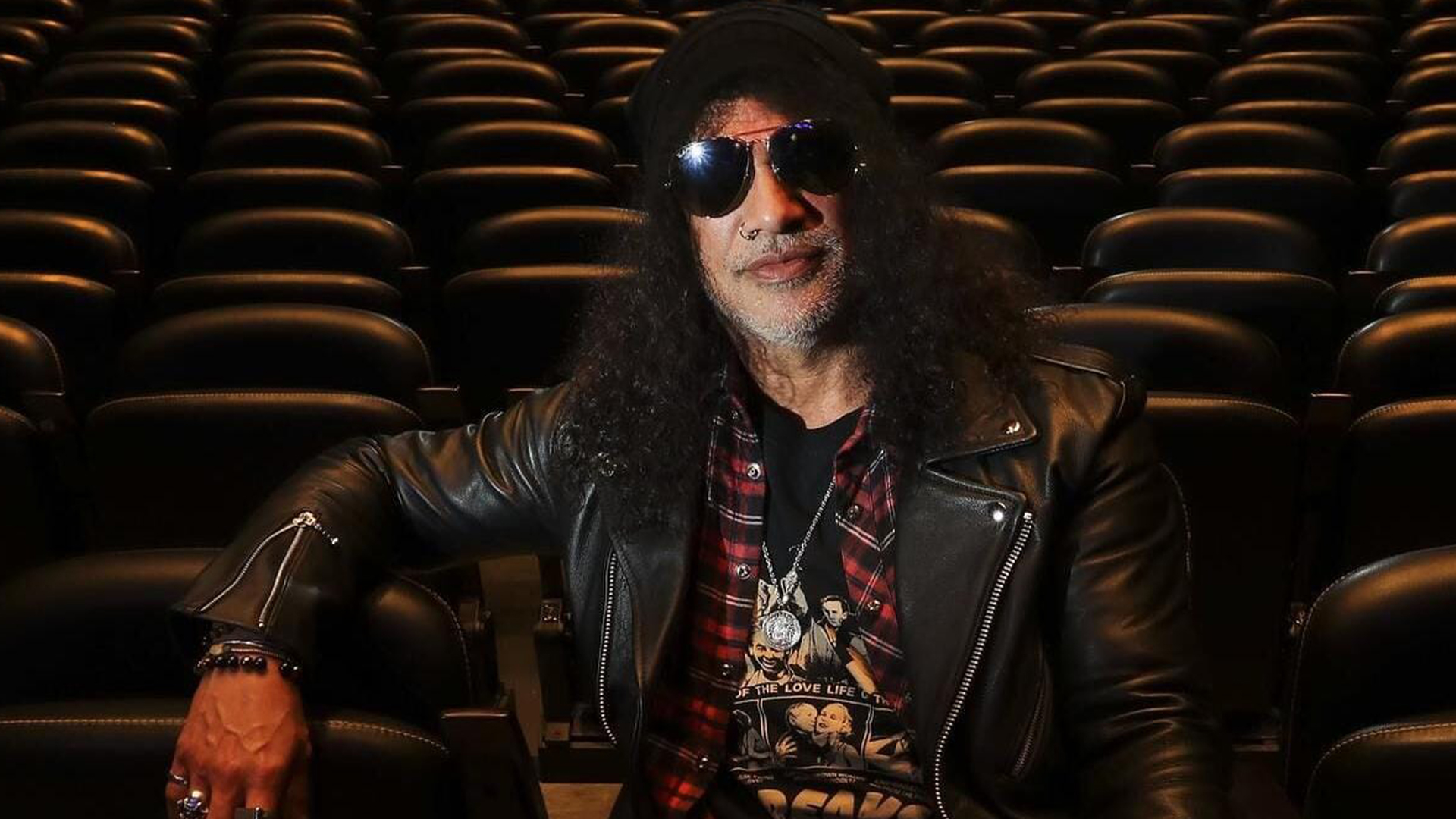
Slash should need no introduction. But rather than talking music, he joins Steve Newall for a chat about his love of horror, and producing films in the genre – as seen with The Breach.
The Breach
Offering cosmic horror in a backwoods location, The Breach is a tale of experiments gone awry and monstrous forces unleashed. There are plenty of echoes to the ’80s in the pic’s storyline, setting and budget—along with some (un)pleasantly goopy practical effects. One thing that may stand out to distinguish The Breach from other entries in its horror sub-genre? The presence of Guns N’ Roses’ Slash, renowned as a skilled axe-wielder himself, as executive producer.
This interview has been edited for length and clarity.
Slash joined us for a chat about The Breach as well his lifelong relationship with, and love for, horror—a genre he’s incredibly enthusiastic about and in which he is excited to be working on a number of upcoming projects. It’s not Slash’s first foray into genre movie production, having produced 2013’s Anne Heche and Clancy Brown-starring horror Nothing Left to Fear. But, as he tells it, the ten-year gap between these films wasn’t deliberate. “I’ve been active this whole time, I just haven’t been able to get anything to the finish line since the last one,” he tells me. “I’ve been very busy, producing stuff and all different stages of development. I’ve had movies completely cast with a director that have fallen apart.”
“I was just turned on by things that were creepy”
Slash can’t really remember when he first got into horror. “I was born that way,” he tells me. “It goes back so far. I think, really, I was just turned on by things that were creepy. Monsters, villains, scary music, scary stories, you know, as early back as I can remember.”
When he was really young and living in England, Slash discovered Hammer horrors on TV. “So I saw my first Vincent Price, Christopher Lee, Peter Cushing, you know, Charles Lawton. All those sorts of British monster movies,” he says “And I just… I fucking love them, you know.” Noting Slash’s early affinity for the genre, his father got him reading H.P. Lovecraft and Edgar Allan Poe and Ray Bradbury, then a move to the States with his mother saw Slash turned on to the horror movies of the ’30s: “Frankenstein, and Dracula and Quasimodo and all of that stuff, plus the all the ’50s horror movies, The Blob and The Fly and I Was a Teenage Werewolf and, I mean, it goes on and on. And I was just obsessed with it. So that’s how it started.”
Slash identifies the 1970s as being a great period for the genre, with what he describes as quality features that were great dramas with a scary twist to them: “And I love that”. He seizes on The Omen as an example: “That’s still, to this day, one of my favourite, well-rounded horror features” Slash says. “With a great cast, great story, and shot in such a way that it was a high-quality production. And that’s always stuck with me.”
“In the ’80s, I was the manager of Tower Video in Hollywood”
Thinking back to my own indoctrination into becoming a horror fan, I bring up the formative experience of VHS rentals as an incredible way to have discovered the world of horror movies. “Well, in the ’80s, I was the manager of Tower Video in Hollywood,” Slash tells me. As the night manager, he had full run of the monitors all through the night, coinciding with what he calls “an onslaught” of horror, thriller, and science fiction coming out on video.
“It was an energised time,” he recalls. “I mean, not everything was great. But, you know, there was a lot of great stuff and a lot of the schlocky stuff was still entertaining.”
“It was actually very similar to porn,” Slash offers. “It wasn’t part of the regular studio system, you could make great movies for cheap, and didn’t have to be a great actor.”
Slash identifies Re-Animator as one of his favourites that came out of the ’80s, alongside John Carpenter’s The Thing. “Then obviously, you had A Nightmare on Elm Street come out at that time, and Jason Voorhees and Michael Myers—everybody wanted to jump on that bandwagon. Not all of it was good, but some of it was actually really good.”
And, as any horror fan knows, some films get to be both. “There was The Toxic Avenger, which was not really a great movie, but it was great because it wasn’t great,” he says. “You know, there was a lot of good stuff that came out of the ’80s. And when I was working at a video store, I was really exposed to all of it.”
When it comes to making horror movies great, not great (or both), practical effects play a big role. They’re responsible for some of my most memorable moments in horror, and the same goes for Slash. “Practical effects are a big thing for me,” he says. “I’m not a fan of CGI, especially when you don’t have the budget for it, and you use it to sort of do everything that you couldn’t figure out how to do as practical. I’m all about making sure that we do as much as possible with practical effects. And that’s that.”
“It was funny, because doing The Breach, we had a movie that was done for pennies, really. I wasn’t physically there, but I watched the whole thing from afar. And [due to COVID] we had minimal people down there to wear those costumes, and then had to make it look like there was a whole army of them.”
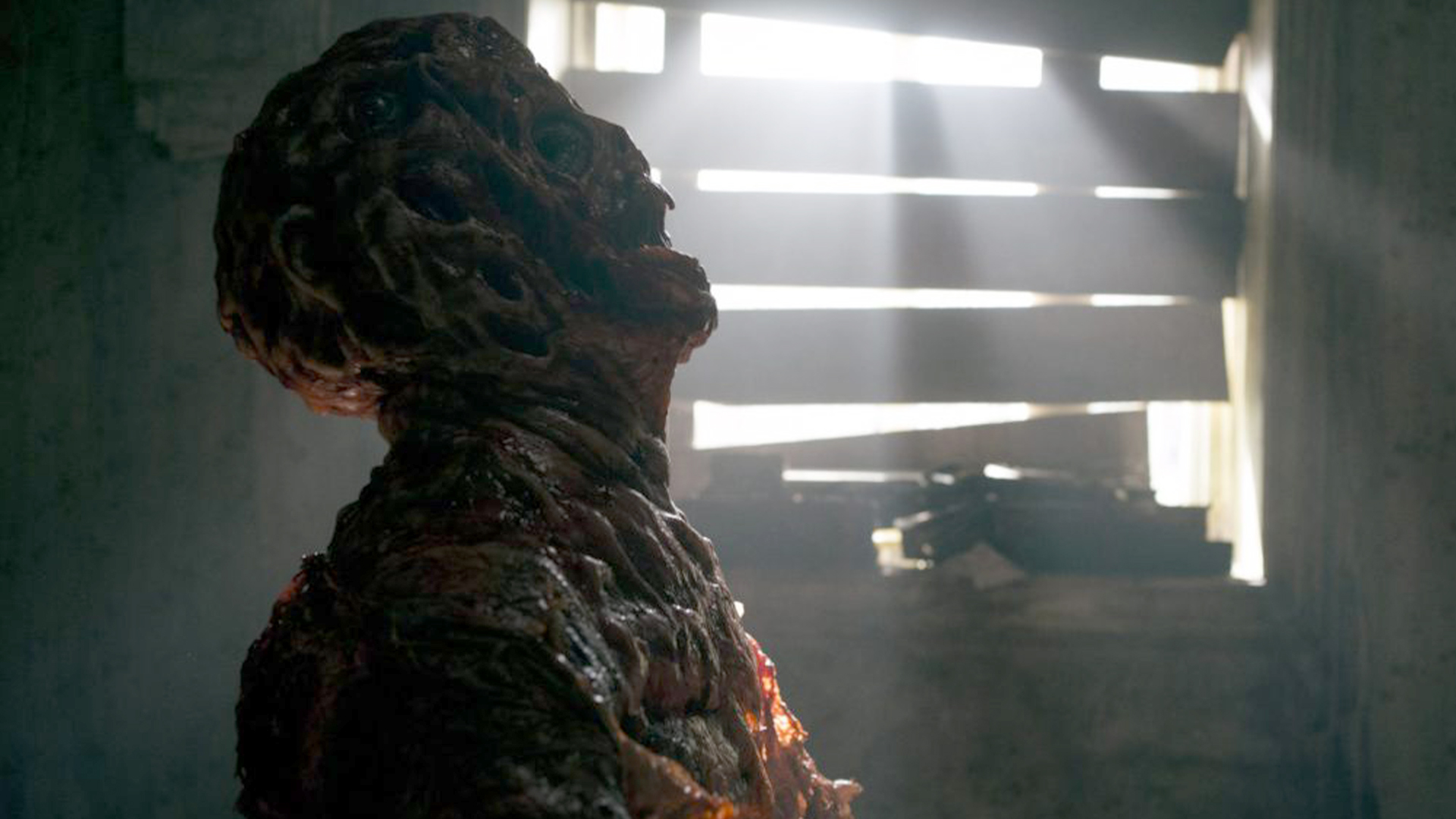
One of the strengths of practical effects is that sink or swim, they have the power to entertain. And they don’t have to be perfect. I suggest to Slash that horror fans are quite happy to suspend their disbelief, wanting to see creativity and effort on the screen—even if it’s not 100% realistic. “As long it’s done with integrity, it’s done from the heart, I think that the true core fans really recognise that,” he replies. “They do identify with something that was made with passion, they can sort of ignore some of the shortcomings. So there’s budgetary limitations and whatnot. But as long as as the director is a true fucking bona fide horror guy, and a couple of people can really act and whatever…”
“It is a lot like music in that way. Because with music, it’s the same thing as well. Music fans—real music fans anyway, I can’t speak for people who just listen to music and Top 40 on the car, y’know—but people who are really into how music is made, and the pureness of it, they’re the same way. You don’t have to have a huge budget to make a great record, if the songs are there and the vocal performance is there.”
Slash sees a lot of parallels with rock and roll and horror, saying they both represent outcast entities, not part of regular mainstream society: “Rebellious, saying things that not everybody wants to hear, you know what I mean? Rock and roll has a certain kind of an attitude that goes against the mainstream, in a lot of ways, and especially against authority.”
“There’s nudity, there’s blood and guts, there’s a lot of similarities”
“Horror is very much the same. It’s the kind of thing that your parents don’t necessarily want you going out and watching, you know—there’s nudity, there’s blood and guts, there’s a lot of similarities. I think it’s one of the reasons why rock and roll and and horror works so well together actually, on film. Or in a movie theatre.”
When it comes to going to see horror at the movies, Slash remains an enthusiast (in fact, when we caught up, he said he was looking forward to going to see Talk To Me, which I strongly recommended as a cinemagoing experience).
His enthusiasm comes with a caveat: “As long as they’re good,” Slash says. “I hate watching really bad stuff. So I’m very picky. Especially if I go into a physical movie theatre. I hate going into a theatre and getting disappointed. It’s funny, because around the time that we did Nothing Left to Fear, the reason I started producing in the first place is because I got so frustrated with the genre at that time, because there was nothing but dreck coming out.”
“I started doing it because I wanted to make movies that I wanted to see. And there was a period there in the first half of the millennium where there was a horror feature coming out once every two weeks. And they were all just, like, hit or miss really. Even a good one was like, OK, you know.” Slash cites James Wan’s The Conjuring and Insidious as films that turned the tide, as well as the rise in psychological horror, and a little later, A24 pics like Hereditary and Green Room (“which wasn’t really a horror movie, but it was still pretty intense”).
“That’s more my thing as opposed to slashers and all that. Hence, my name is sort of funny because everybody assumes that you know, with the name Slash that I do all the slasher movies, but that’s not my thing at all. So, movies that started to be a little bit more cerebral and a little bit more story driven and stuff started coming out. And now good horror movies are not as few and far between at this point.”
“I love good quality horror stuff, story driven, character driven,” Slash says. “Basically, what I like to call dramas that are dark and twisted, fucked up. But I also like certain kinds of science fiction stuff. I love really high suspense thrillers. I think that I like anything that’s well written, that is dark in some way. And, you know, it doesn’t necessarily have to have monsters in it—but I do love monsters… It’s hard to find good monsters these days.”
Despite having been a horror fanatic ever since he was a kid, for a long time, it didn’t occur to Slash to get into the movie business himself—because he was so busy with music. “Since I’ve been doing it, even though I’ve had so many disappointments along the way, it’s something that I just keep coming back to,” he says. “It’s starting to pick up momentum. I would love to be able to put out three quality fucking horror movies that I really like each year, that would be awesome.”
Setting aside the false starts and stuff that didn’t happen, Slash finds it ironic that the one movie he did actually get done in recent years actually had the biggest, most seemingly insurmountable obstacle. “I’d read the script for The Breach—way ahead, when Rodrigo Gudiño, the guy who directed it and wrote the screenplay, first showed it to me,” he says. “And so we finally got it up and running. And then COVID hit.”
“We managed to get it done anyway,” Slash continues. “So that was cool. So now, I’ve gotten a lot of experience, and I’ve met a lot of people in the industry, and so on and so forth. And now I’ve got a bunch of different projects that are all sort of going at the same time. And, you know, thank my lucky stars, they all get done.”
“You have to be passionate about it – it’s a grind”
“I’ve got a thriller coming out with English studio Buccaneer, who do some great crime thrillers, a story that they picked up for me. That’s coming out next year, and they’re in the process of writing the entire series right now, that’s pretty exciting. So it’s moving.”
The thing is to get a few movies under your belt, Slash shares, to have that clout so people recognise that you’re actually doing something—then it’s easier to get financing and things in place. “You have to be passionate about it. It’s a grind.”
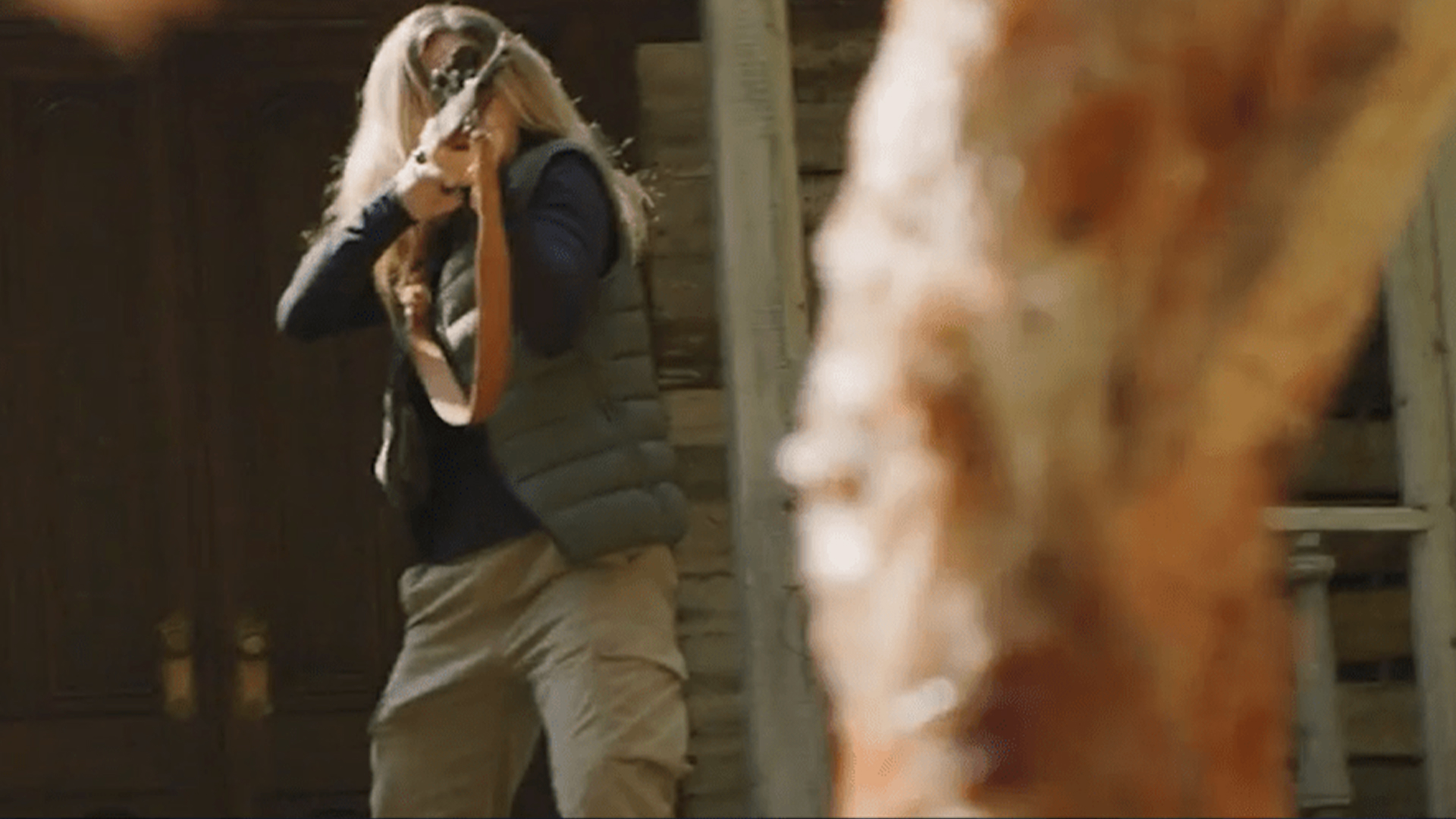
When COVID hit just as The Breach was about to go into production, the whole thing looked wobbly—until, in true ’80s horror fashion, they figured out how to shoot the whole movie on one location. Isolated out in the woods in Ontario, everybody lived on set, and nobody went anywhere for six weeks, he tells me. At an empty hotel out in the woods, the crew built different façades and interiors to make it look like a few different locations, but it was all shot in one place.
“There were no staff in the hotel because, you know, everybody was on lockdown,” he says. “So my producing partners actually cooked meals for the entire crew and the cast.” Slash, meanwhile, was in Los Angeles working on the music for the film with scoring partner Aybars Altay, who was in Germany at the time. While they sent music back and forth, dailies were coming in from Ontario and they managed to pull the film together.
“As much as I can be hands-on, I like to be there.”
As a horror fan who’d worked for so long to get a film into production, he must be keen to get a chance at seeing things come to life in the future, I suggest.
“I’d like to be on the set as much as possible, schedules permitting,” Slash confirms. “I was just in England working with the guys at Buccaneer on this new show that I’m talking about. And pretty soon when it gets into production, I’ll be able to fly over. You know, I’m on tour a lot. That’s another thing, from 2013 up until now, I’ve been doing a lot of touring.”
Slash rejoined Guns N’ Roses for the 175-date Not In This Lifetime Tour pre-COVID (the sixth highest-grossing tour of all time), and the band has resumed touring post-COVID in what bandmate Duff McKagan described to me elsewhere as “aggressive” fashion.
“So it does make my schedule a little hectic,” Slash says. “But yeah, as much as I can be hands-on, I like to be there.”
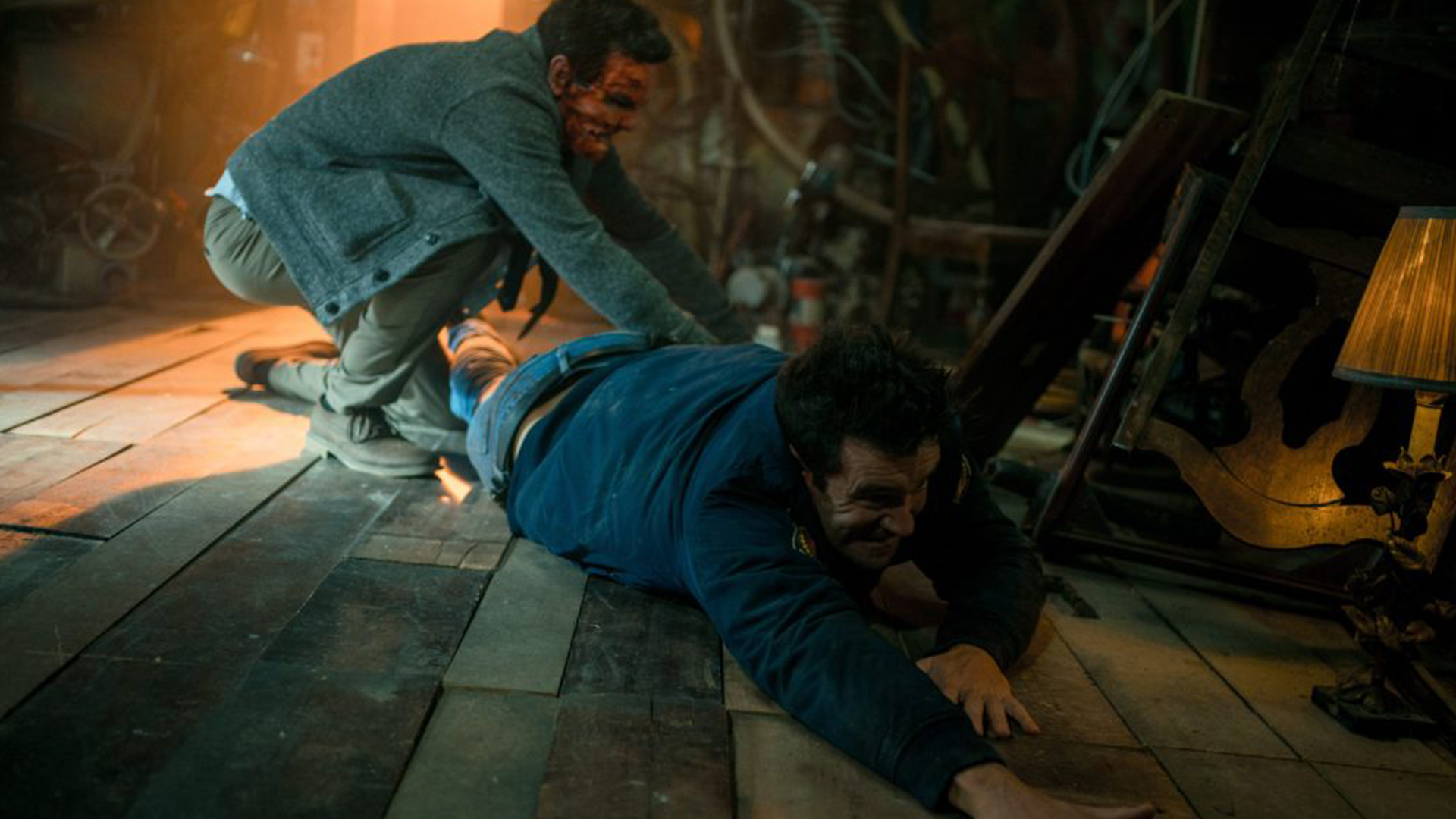
The other bonus with producing, as Slash notes, is that with anything that he produces, he’s going to be involved with the music. That might not mean he has to score everything, but as he tells me, he loves the idea of putting the right music with the right visual, describing that as the ultimate entertainment experience.
Whether or not Slash will be involved writing or performing scores, he’s excited about being involved in the musical element. “I’ll tell you this much,” he says, “I do not see it in the immediate or even distant future, where I’m just sitting around scoring movies.” As he puts it, he can write something, but will use a scoring composer to figure out how it should be orchestrated and get it into the movie, without having to score the whole film himself—because he doesn’t have the patience or the time.
Slash provides an insight about his scoring work, with one underway at the moment for his upcoming TV series. “I just go off of the written word, and start coming up with ideas for music,” he explains. “There’s a mood that it brings up and that’s all it is, you know—you have the story, it’s in your head, and you start coming up with ideas”. Hopefully those will fit into the mood of what the story is about, he says, with the music starting to present itself that way, and through a bunch of tinkering coming together as a theme or piece of background music for a certain scene.
“It’s very different from how I write in a band context”
“It’s an interesting process,” Slash says, “because it’s very different from how I write in a band context. I’m just coming from a completely different place. So it’s, it’s fun for me to discover a new sort of way of writing and and another inspiration outside of what it is that I normally do.”
It comes as little surprise that Slash identifies the musical element as a big contributor to his love of horror movies. “All great movies that I can least think of, off the top of my head, all have great scores—or barely a score,” he tells me. “When you go way back with horror, obviously sound in the ’30s was very minimal. And then you started to get into a place, like with the Hammer movies that I was talking about, which were done in the ’60s, those were all very familiar horror scores with these certain kinds of changes, these certain kinds of chords that have this dissonance to them. And it was really, really common—you heard those sounds, you knew you were watching a horror movie.”
“And then as we got into the ’70s, we started to get into some really epic kind of scores,” Slash says: “The Omen was a really good one. You had big scoring composers doing these movies, doing really great, very melodic and dark melodies for some of these horror movies that were very different from the old school kind of scores.”
That’s a trend that Slash sees continued in the present day with composers like Hans Zimmer. “If he is to do anything that’s sort of a thriller, or horror type movie, he introduces emotional melodies, as opposed to just dissonant chords, and, you know, pounding away on the fucking low end of the piano. So he starts coming up with some really great melodies that have a lot of emotive qualities to them. That’s a great development—I think horror scores should be dark, but they should have variables in the tone so that it’s not all sort of one dimensional.”
“You’re supposed to not think about the music, and it’s supposed to dive you deeper into the story,” Slash says. “But I mean, all things considered—maybe it’s just because I’m a musician—I listen.” And while it’s not really genre fare, there’s another modern composer’s work that’s made an impression: “Jonny Greenwood, who I think is fucking phenomenal. When he did There Will Be Blood, I had no idea it was Jonny Greenwood, but I was listening and thinking ‘this fucking score is amazing!’ And it’s just a bunch of noise. Right? It’s not really what you call melodic, it’s more of intense sounds put together, and it does evoke a real tension. And so I looked into it, found it was fucking Johnny Greenwood, and was like, ‘wow, that’s cool'”.
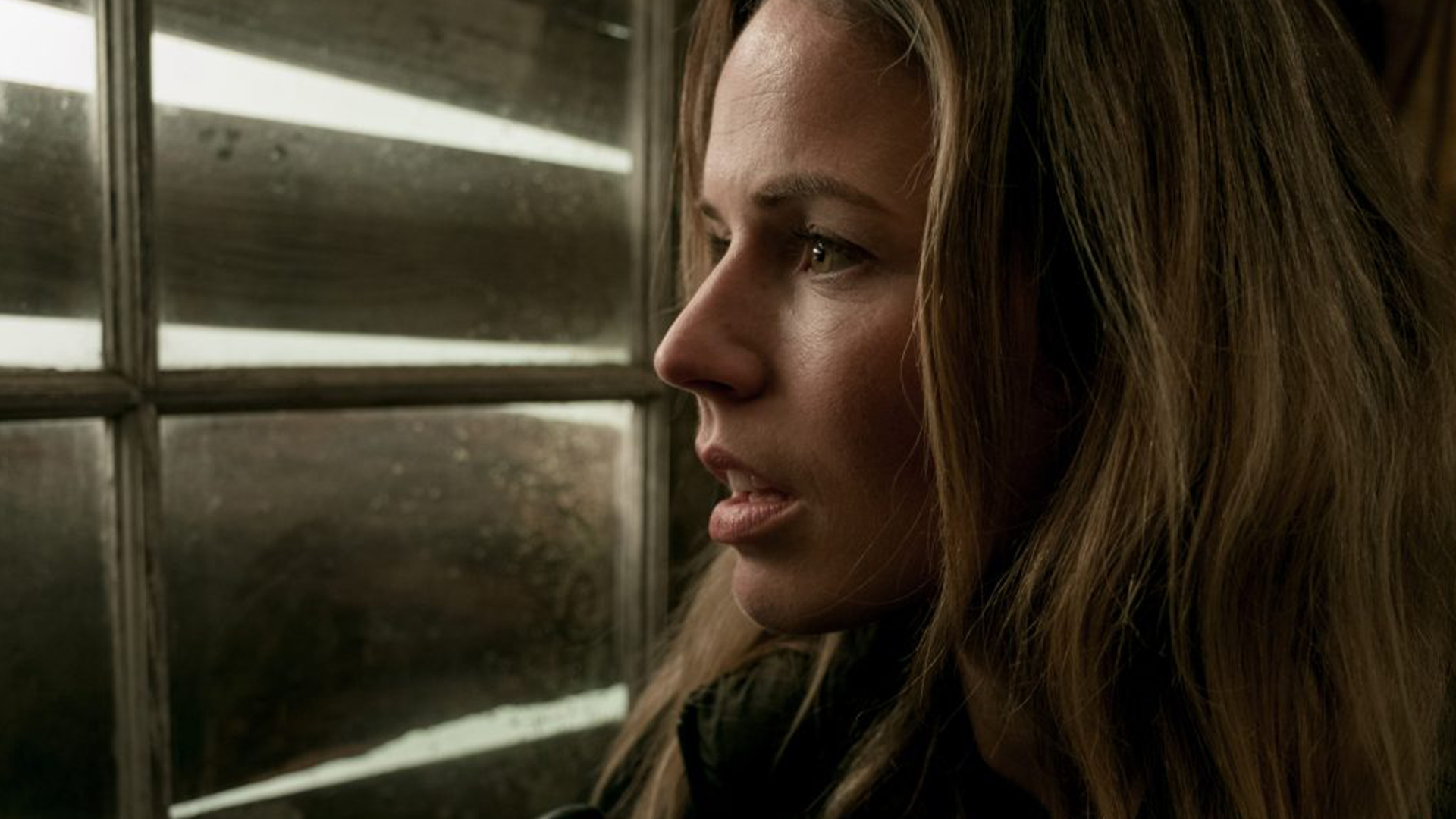
As our time wraps up, we return to The Breach. Slash’s score for the film lines up with its mood. “I knew this from the script,” he says. “There’s definitely an ’80s kind of vibe to it. Sort of ‘slow burn mad scientist out in the woods’, and ‘bloody, humanoid, sort of zombies’ as well.”
So what would be some other horror pics Slash would suggest watching to get in the right zone? “I already mentioned the movie Re-Animator,” he says, “And even though it’s nothing like Re-Animator really, at the same time, it very much reminds me of it. So that would be that would be a good movie to dig up and watch alongside this one. Invasion of the Body Snatchers with Donald Sutherland is another one that you could watch—and then put it back to back with The Breach. And some popcorn.”




















